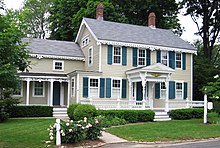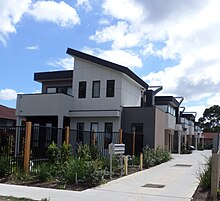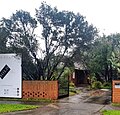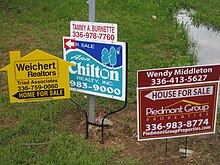
Okay, so youre considering buying a home in Pleasanton in 2025? Realtor Pleasanton . Smart move! Pleasantons a superb place, but lets be real, browsing the real estate market can seem like trying to read ancient hieroglyphics. So, lets take a peek at what 2025 might hold for you, aspiring Pleasanton homeowner.
Consider the 2025 market as a balancing act. Rate of interest, the overall economy, and the number of homes really offered are all handling each other. Now, its challenging to claim exactly where things will land. Some professionals are forecasting a mild cooling, indicating even more homes on the market and possibly a little less competition.
The vital takeaway is this: knowledge is power. Partnering with a neighborhood Pleasanton realtor is crucial. Theyre on the ground, seeing the trends as they establish, and can offer you real-time insights that no online article can supply. Pleasanton real estate broker – Closing deals before your coffee gets cold. Theyll find out about promising neighborhoods, brand-new advancements, and also whispers regarding residential properties that may be striking the market soon.
Your 2025 home purchasing guide come down to this: do your homework. Understand your budget, get pre-approved for a mortgage, and most significantly, discover a realtor that recognizes Pleasanton inside and out. Theyll be your guide, your supporter, and your sanity-saver in what can be a wild adventure. Best of luck, and welcome to Pleasanton (ideally)!
Okay, so youre dreaming of Pleasanton in 2025, picturing yourself working out right into that best home. Great! However before you obtain too scooped in paint shades and yard bbqs, lets talk about the unglamorous, but absolutely essential, stuff: your budget and exactly how youre going to spend for everything.
Think about your budget as your personal compass, guiding you towards a home you can pleasantly afford. Its not nearly just how much you want to spend, however just how much you can spend without stressing on your own out. Beginning by truthfully evaluating your revenue, your monthly costs (whatever from rent to Netflix!), and any kind of arrearages. Consider points that could change-- a possible raising, a brand-new automobile repayment, also childcare expenses if youre preparation for a family members. There are great deals of totally free online budgeting devices and applications that can help you obtain a clear picture of your financial landscape.
Once you have a good handle on your budget plan, its time to check out financing alternatives. Home loans are one of the most typical means to purchase a home, however understanding the different types is essential. Are you checking out a fixed-rate mortgage for stability, or a variable-rate mortgage that might offer lower first payments? What regarding government-backed lendings like FHA or VA, which can be wonderful options depending upon your circumstance? Don't fail to remember to search! Talk to various lenders, contrast interest rates, and pay very close attention to fees and closing costs. Getting pre-approved for a mortgage is a wise action; it reveals vendors youre severe and offers you a practical idea of just how much you can borrow.
And keep in mind, getting a home isn't almost the mortgage repayment. Consider property taxes, homeowners insurance, prospective HOA costs, and the cost of repair and maintenance. It builds up!
Browsing the world of budget plans and funding can feel overwhelming, yet don't be afraid to ask for help. An excellent Realtor in Pleasanton (like the one youre intending to discover!) can connect you with trusted monetary experts that can guide you via the process and assist you make informed choices. Ultimately, comprehending your budget plan and discovering your funding options is the foundation for a successful and worry-free home getting experience in Pleasanton in 2025. So, do your homework, be practical, and prepare yourself to make your Pleasanton dream a truth!

Okay, so youre thinking of Pleasanton, California in 2025? Outstanding! Its a wonderful location, but discovering the right community there is vital to really loving where you live. Its not a one-size-fits-all example, you recognize?
Consider whats vital to you . Got youngsters? Then community colleges are possibly leading of your checklist. Some areas in Pleasanton boast highly-rated primary, center, and senior high schools, like those zoned for Amador Valley High. Youll likely pay a premium to be in those areas, however, for numerous family members, its worth every dime.
Perhaps institutions aren't a big offer. Perhaps you crave that walkable, downtown vibe. Picture strolling to coffeehouse, restaurants, and the weekly farmers market. In that instance, look at neighborhoods closer to Main Street. They tend to have smaller great deals and older homes, but the ease is unsurpassable.
After that theres the community feeling. Some communities are understood for their solid sense of belonging, with block celebrations and close-knit relationships. Others are a bit much more exclusive and expanded. Consider what kind of social atmosphere youre looking for.

Dont forget about way of life! Do you dream of a vast lawn with a swimming pool?
Lastly, and lets be sincere, this is substantial: budget. Pleasanton is expensive. Different neighborhoods have various price factors. Be reasonable regarding what you can afford and collaborate with a local Pleasanton realtor (like the ones this guide is everything about!) to limit your alternatives. Theyll have the inside scoop on upcoming listings and can assist you browse the market.
Discovering the right community isn't practically locating a house. Its about locating your location in Pleasanton. Do your study, consider your top priorities, and get ready to fall in love with your new neighborhood.
Okay, so youre considering buying a home in Pleasanton in 2025? Incredible! Its a wonderful location to live. But browsing the real estate market, particularly in a competitive location like Pleasanton, can feel a little bit like attempting to construct IKEA furnishings without the instructions. Thats where an excellent Realtor can be found in. Think about them as your professional overview, translator, and arbitrator all rolled into one.
When you partner with a Pleasanton Realtor, expect them to be deeply familiar with the local market. They ought to recognize the areas like the back of their hand-- the college areas, commute times, community vibes, ball of wax. Theyll be able to offer you practical expectations about prices, based not simply on the overall market, but on the certain functions and area youre trying to find.
Beyond market expertise, anticipate them to truly listen to what you want. Its not almost square footage and variety of bedrooms. Its about your way of living, your top priorities, and your long-term goals. An excellent Realtor will ask the ideal inquiries to understand your requirements and assist you specify what youre actually looking for in a home.
Then comes the enjoyable part-- the search! Anticipate your Realtor to proactively discover properties that fit your criteria, even ones that aren't commonly marketed. Theyll schedule provings, walk you with the homes, point out prospective mistakes, and aid you imagine on your own living there.
When you discover "" the one,"" expect them to be your supporter. Theyll assist you craft a competitive offer, discuss with the seller (or their agent), and guide you with the mountain of documentation. Theyll likewise attach you with various other essential players, like lenders, examiners, and contractors, making the entire process smoother.
Ultimately, expect your Realtor to be there for you even after you close the deal. They can be a beneficial source for recommendations for neighborhood solutions, contractors, and anything else you might need as you clear up right into your new home. Basically, dealing with a Pleasanton Realtor in 2025 methods having actually a relied on companion who recognizes the neighborhood market and is dedicated to helping you find the excellent place to call home. Its a financial investment in a smoother, much less demanding, and inevitably a lot more effective home acquiring journey.

Okay, so youre thinking of getting a home in Pleasanton in 2025? Outstanding! Its a huge action, and lets be truthful, it can feel like navigating a labyrinth. Yet do not worry, it does not have to be overwhelming. Think about this as your pleasant overview to making sense of all of it.
The important things is, buying a home in 2025 isn't going to be exactly the like it was, claim, five years earlier. The marketplaces constantly moving, and innovation keeps altering the video game. Rate of interest may look a little various, the inventory of homes readily available can rise and fall, and just how you even find those homes might include some brand-new tools and methods.
Thats where recognizing the current landscape is available in. Knowing what to anticipate relating to mortgage prices, potential modifications to offering practices, and the overall economic climate is vital. Well additionally require to think about just how Pleasanton itself is advancing. Are there brand-new advancements popping up? Hows the job market looking? Whats the buzz with neighborhood institutions?
However its not just about the numbers and the patterns. Its concerning you . What are your concerns? What kind of way of living are you seeking? What are your must-haves in a home? Understanding your own demands and desires is the foundation for a successful home buying trip.
So, twist up! Well check out the ins and outs of obtaining pre-approved for a mortgage, looking for residential or commercial properties in a smarter method (assume online trips and AI-powered search tools), and making competitive offers that attract attention. Well also talk about navigating the closing process with self-confidence.
Consider this your beginning point for a smoother, a lot more notified, and inevitably more fulfilling home buying experience in Pleasanton in 2025. Allows make your desire for homeownership a fact.
Okay, so youre thinking of getting a home in Pleasanton in 2025? Smart relocate! Its an amazing location to live. But before you start picturing yourself drinking coffee on your brand-new patio, lets speak about two vital actions you absolutely cant miss: the home inspection and the appraisal.
Consider the home inspection as your investigator work. Youre working with a professional to completely examine your house, from the roof down to the structure. Theyll search for prospective problems like leaking pipelines, defective circuitry, insect invasions, or architectural issues. This isn't concerning quibbling paint colors; its concerning uncovering surprise flaws that can cost you a fortune down the road. The examiners report offers you utilize. You can ask the seller to take care of certain problems, bargain a reduced rate, and even walk away from the bargain if the troubles are also considerable. Its comfort wrapped up in a thorough report.
Now, the appraisal is different. While the assessment safeguards you , the appraisal largely shields the lending institution . The loan provider wishes to make sure your home is really worth the amount of cash theyre lending you. An evaluator will analyze the residential properties worth based upon its problem, place, dimension, and current sales of equivalent homes in the Pleasanton location. If the appraisal is available in less than the agreed-upon acquisition rate, youll likely need to renegotiate with the seller, create the distinction in cash, or potentially locate another property.
Both the evaluation and the appraisal are essential for a smooth and successful home purchasing experience in Pleasanton. Theyre financial investments in your future happiness and economic security. Do not attempt to reduce edges here. Collaborating with experienced specialists who comprehend the Pleasanton market is crucial to making educated choices and staying clear of pricey shocks. Good luck with your house quest!
Okay, so youve discovered the home in Pleasanton you definitely adore. Congratulations! But the excitement shouldnt outweigh the crucial actions of actually closing the deal and moving in. Think of it as the final lap of a marathon-- youre close, however you need to stay focused to cross the finish line solid.
"" Closing the Deal"" in 2025, even with possibly upgraded technology and processes, still boils down to cautious negotiation and precise paperwork. Your Realtor is your MVP right here. Theyll overview you with the counter-offer dances, making certain youre obtaining the most effective possible rate and terms. Pay attention to contingencies-- evaluations, financing, appraisal-- and see to it you understand the effects of each. Don't be afraid to ask questions, despite just how silly they could seem. Its a massive investment, and clarity is key.
As soon as the closing day is established, the real enjoyable (and tension!) starts-- "Moving In."" Begin planning well ahead of time. Book movers early, specifically if youre planning a relocation throughout height season. Begin packing systematically, classifying boxes clearly, and decluttering as you go. Take into consideration establishing utilities and internet solutions well prior to your move-in date. Theres absolutely nothing worse than arriving at your new home to uncover you have no electrical power or Wi-Fi!
Ultimately, keep in mind to breathe. Relocating is chaotic, however its also the start of a brand-new chapter. Take points one step at once, lean on your Realtor for assistance, and accept the journey of making your brand-new Pleasanton house a home.
|
|
This article needs additional citations for verification. (September 2016)
|
|
Tri-Valley
|
|
|---|---|
|
Area of the East Bay
|
|

Tri-Valley Landscape
|
|

Tri-Valley location in California
|
|

Tri-Valley
Location in the United States
|
|
| Coordinates: 37°39′45″N 121°52′29″W / 37.66250°N 121.87472°W | |
| Population
|
|
|
• Total
|
361,000 |
| Time zone | UTC-8 (Pacific Time Zone) |
| • Summer (DST) | UTC-7 (PDT) |
The Tri-Valley area is grouping of three valleys in the East Bay region of California's Bay Area. The three valleys are Amador Valley, Livermore Valley, and San Ramon Valley. The Tri-Valley encompasses the cities of Dublin, Livermore, Pleasanton and San Ramon, the town of Danville, and the CDPs of Alamo, Blackhawk, Camino Tassajara, Diablo, and Norris Canyon. The area is known for its Mediterranean climate, wineries, and nature. It is primarily suburban in character. The total population of the Tri-Valley was 400,213 at the 2020 U.S. Census. It offers more affordable living accommodations than the cities of San Francisco and San Jose.[1][2]
The Ohlone tribe settled the area circa 2000 BC, particularly in the northern part of Pleasanton. In AD 1772, however, Spanish settlers involved with the nearby mission work at Mission San Jose restructured the Ohlone way of life.[3][4]
The area began to be developed when the Gold Rush ended. During this period, the area went from being marshland to agricultural.[5]
The climate of the Tri-Valley is mild. Most rain falls in the winter. Snow almost never occurs, although it sometimes falls on the tops of surrounding mountains, especially Mt. Diablo. Summer days are in the 80s to over 100 °F, but nights are often cool. In winter, daytime temperatures reach the 50s and 60s, while nights are in the 30s and 40s, dipping on rare occasions into the 20s. Mean annual rainfall ranges from about 14 in (360 mm) in Livermore to 23 in (580 mm) in Alamo.[6]
The Tri-Valley is serviced by WHEELS, operated by the Livermore Amador Valley Transit Authority (LAVTA), a bus agency that operates local bus service throughout Livermore, Pleasanton and Dublin, including service to Hacienda Business Park, Lawrence Livermore National Laboratory, Las Positas College, Stoneridge Mall, the West Dublin/Pleasanton BART Station and the Dublin/Pleasanton BART station.
Two major highways, Interstates 580 and 680 cross the Tri-Valley area. Interstate 580 runs east-west, connecting the area to the Central Valley to the east and the North Bay area to the west. Interstate 680 runs north-south, connecting the area to the South Bay area in the south, and the Concord-Walnut Creek area in the north. The two interstates cross on the border of Dublin and Pleasanton.
The Tri-Valley area is also serviced by BART, offering service to the rest of the San Francisco Bay Area via two stops: West Dublin/Pleasanton and the Dublin/Pleasanton terminus station.[7] The West Dublin/Pleasanton Station opened in 2011, and was the first infill station on an existing line. In 2018, BART cancelled plans[8] to extend the line to Livermore. However, the Tri-Valley–San Joaquin Valley Regional Rail Authority is in the planning process[9] for a rail connection between BART, ACE, and the San Joaquin Valley called the Valley Link.

The Tri-Valley is home to the corporate headquarters of many companies, including 10X Genomics, 24 Hour Fitness, Architectural Glass and Aluminum, Bay Area News Group, Blackhawk Network Holdings, CallidusCloud, Chevron, The Cooper Companies, Discovery Toys, Ellie Mae, GE Digital, Gillig Corporation, Patelco Credit Union, Prosoft Engineering, Ross Stores, SafeAmerica Credit Union, Safeway, Shaklee, TriNet, Veeva Systems, Visioneer, WANdisco, The Wine Group, Product10x Accelerator, Salestable and Workday.
Major employment centers include Bishop Ranch and Hacienda Business Park.
Lawrence Livermore National Laboratory and Sandia National Laboratories are also major employers in the region.

The Tri-Valley features access to many recreational options, including Alviso Adobe Community Park, Blackhawk Museum, Brushy Peak Regional Preserve, Del Valle Regional Park, Dublin Hills Regional Park, Eugene O'Neill National Historic Site, Forest Home Farms, Iron Horse Regional Trail, Las Trampas Regional Wilderness, Little Hills Picnic Ranch, Livermore Valley Wine Country, Morgan Territory Regional Preserve, Mount Diablo State Park, Pleasanton Ridge Regional Park, Shadow Cliffs Regional Recreation Area and The Wave Waterpark.
|
|
The examples and perspective in this article may not represent a worldwide view of the subject. (March 2023)
|
| Property law |
|---|
 |
| Part of the common law series |
| Types |
|
| Acquisition |
|
| Estates in land |
|
| Conveyancing |
|
| Future use control |
|
| Nonpossessory interest |
|
| Related topics |
|
| Other common law areas |
Higher category: Law and Common law |
Real estate is property consisting of land and the buildings on it, along with its natural resources such as growing crops (e.g. timber), minerals or water, and wild animals; immovable property of this nature; an interest vested in this (also) an item of real property, (more generally) buildings or housing in general.[1][2] In terms of law, real relates to land property and is different from personal property, while estate means the "interest" a person has in that land property.[3]
Real estate is different from personal property, which is not permanently attached to the land (or comes with the land), such as vehicles, boats, jewelry, furniture, tools, and the rolling stock of a farm and farm animals.
In the United States, the transfer, owning, or acquisition of real estate can be through business corporations, individuals, nonprofit corporations, fiduciaries, or any legal entity as seen within the law of each U.S. state.[3]
The natural right of a person to own property as a concept can be seen as having roots in Roman law as well as Greek philosophy.[4] The profession of appraisal can be seen as beginning in England during the 1500s, as agricultural needs required land clearing and land preparation. Textbooks on the subject of surveying began to be written and the term "surveying" was used in England, while the term "appraising" was more used in North America.[5] Natural law which can be seen as "universal law" was discussed among writers of the 15th and 16th century as it pertained to "property theory" and the inter-state relations dealing with foreign investments and the protection of citizens private property abroad. Natural law can be seen as having an influence in Emerich de Vattel's 1758 treatise The Law of Nations which conceptualized the idea of private property.[6]
One of the largest initial real estate deals in history known as the "Louisiana Purchase" happened in 1803 when the Louisiana Purchase Treaty was signed. This treaty paved the way for western expansion and made the U.S. the owners of the "Louisiana Territory" as the land was bought from France for fifteen million dollars, making each acre roughly 4 cents.[7] The oldest real estate brokerage firm was established in 1855 in Chicago, Illinois, and was initially known as "L. D. Olmsted & Co." but is now known as "Baird & Warner".[8] In 1908, the National Association of Realtors was founded in Chicago and in 1916, the name was changed to the National Association of Real Estate Boards and this was also when the term "realtor" was coined to identify real estate professionals.[9]
The stock market crash of 1929 and the Great Depression in the U.S. caused a major drop in real estate worth and prices and ultimately resulted in depreciation of 50% for the four years after 1929.[10] Housing financing in the U.S. was greatly affected by the Banking Act of 1933 and the National Housing Act in 1934 because it allowed for mortgage insurance for home buyers and this system was implemented by the Federal Deposit Insurance as well as the Federal Housing Administration.[11] In 1938, an amendment was made to the National Housing Act and Fannie Mae, a government agency, was established to serve as a secondary market for mortgages and to give lenders more money in order for new homes to be funded.[12]
Title VIII of the Civil Rights Act in the U.S., which is also known as the Fair Housing Act, was put into place in 1968 and dealt with the incorporation of African Americans into neighborhoods as the issues of discrimination were analyzed with the renting, buying, and financing of homes.[13] Internet real estate as a concept began with the first appearance of real estate platforms on the World Wide Web (www) and occurred in 1999.
Residential real estate may contain either a single family or multifamily structure that is available for occupation or for non-business purposes.[14]
Residences can be classified by and how they are connected to neighbouring residences and land. Different types of housing tenure can be used for the same physical type. For example, connected residences might be owned by a single entity and leased out, or owned separately with an agreement covering the relationship between units and common areas and concerns.[15]
According to the Congressional Research Service, in 2021, 65% of homes in the U.S. are owned by the occupier.[16]


Other categories
The size of havelis and chawls is measured in Gaz (square yards), Quila, Marla, Beegha, and acre.
See List of house types for a complete listing of housing types and layouts, real estate trends for shifts in the market, and house or home for more general information.
Real estate can be valued or devalued based on the amount of environmental degradation that has occurred. Environmental degradation can cause extreme health and safety risks. There is a growing demand for the use of site assessments (ESAs) when valuing a property for both private and commercial real estate.[17]
Environmental surveying is made possible by environmental surveyors who examine the environmental factors present within the development of real estate as well as the impacts that development and real estate has on the environment.
Green development is a concept that has grown since the 1970s with the environmental movement and the World Commission on Environment and Development. Green development examines social and environmental impacts with real estate and building. There are 3 areas of focus, being the environmental responsiveness, resource efficiency, and the sensitivity of cultural and societal aspects. Examples of Green development are green infrastructure, LEED, conservation development, and sustainability developments.
Real estate in itself has been measured as a contributing factor to the rise in green house gases. According to the International Energy Agency, real estate in 2019 was responsible for 39 percent of total emissions worldwide and 11 percent of those emissions were due to the manufacturing of materials used in buildings.[18]
| Part of a series on |
| Living spaces |
|---|
 |


Real estate development involves planning and coordinating of housebuilding, real estate construction or renovation projects.[19] Real estate development can be less cyclical than real estate investing.[20]
In markets where land and building prices are rising, real estate is often purchased as an investment, whether or not the owner intends to use the property. Often investment properties are rented out, but "flipping" involves quickly reselling a property, sometimes taking advantage of arbitrage or quickly rising value, and sometimes after repairs are made that substantially raise the value of the property. Luxury real estate is sometimes used as a way to store value, especially by wealthy foreigners, without any particular attempt to rent it out. Some luxury units in London and New York City have been used as a way for corrupt foreign government officials and business people from countries without strong rule of law to launder money or to protect it from seizure.[21] Investment in real estate can be categorized by financial risk into core, value-added, and opportunistic.[22]
cite web: CS1 maint: bot: original URL status unknown (link)
|
|
This article possibly contains original research. (July 2014)
|

Real estate agents and real estate brokers are people who represent sellers or buyers of real estate or real property. While a broker may work independently, an agent usually works under a licensed broker to represent clients.[1] Brokers and agents are licensed by the state to negotiate sales agreements and manage the documentation required for closing real estate transactions.
A real estate broker typically receives a real estate commission for successfully completing a sale. Across the U.S, this commission can generally range between 5-6% of the property's sale price for a full-service broker but this percentage varies by state and even region.[2]
In most jurisdictions in the United States, a person must have a license to perform licensed activities, and these activities are defined within the statutes of each state. The main feature of the requirement for having a license to perform those activities is the work done "for compensation". Hence, hypothetically, if a person wants to help a friend out in either selling or buying a property, and no compensation of any kind is expected in return, then a license is not needed to perform all the work. However, since most people would expect to be compensated for their efforts and skills, a license would be required by law before a person may receive remuneration for services rendered as a real estate broker or agent. Unlicensed activity is illegal and the state real estate commission has the authority to fine people who are acting as real estate licensees, but buyers and sellers acting as principals in the sale or purchase of real estate are usually not required to be licensed. It is important to note that in some states, lawyers handle real estate sales for compensation without being licensed as brokers or agents. However, even lawyers can only perform real estate activities that are incidental to their original work as a lawyer. It cannot be the case that a lawyer can become a seller's selling agent if that is all the service that is being requested by the client. Lawyers would still need to be licensed as a broker if they wish to perform licensed activities. Nevertheless, lawyers do get a break in the minimum education requirements (for example, 90 hours in Illinois).[3]
Some other states have recently eliminated the salesperson's license, instead, all licensees in those states automatically earn their broker's license.
The term "agent" is not to be confused with salesperson or broker. An agent is simply a licensee that has entered into an agency relationship with a client. A broker can also be an agent for a client. It is commonly the firm that has the actual legal relationship with the client through one of their sales staff, be they salespersons or brokers.
In all states, the real estate licensee must disclose to prospective buyers and sellers the nature of their relationship [4]
Some U.S. state real estate commissions – notably Florida's[5] after 1992 (and extended in 2003) and Colorado's[6] after 1994 (with changes in 2003) created the option of having no agency or fiduciary relationship between brokers and sellers or buyers.
As noted by the South Broward Board of Realtors, Inc. in a letter to State of Florida legislative committees:
"The Transaction Broker crafts a transaction by bringing a willing buyer and a willing seller together and provides the legal documentation of the details of the legal agreement between the same. The Transaction Broker is not a fiduciary of any party, but must abide by the law as well as professional and ethical standards." (such as NAR Code of Ethics).
The result was that, in 2003, Florida created a system where the default brokerage relationship had "all licensees ... operating as transaction brokers, unless a single agent or no brokerage relationship is established, in writing, with the customer"[7][8] and the statute required written disclosure of the transaction brokerage relationship to the buyer or seller customer only through July 1, 2008.
In the case of both Florida[8] and Colorado,[6] dual agency and sub-agency (where both listing and selling agents represent the seller) no longer exist.
Other brokers and agents may focus on representing buyers or tenants in a real estate transaction. However, licensing as a broker or salesperson authorizes the licensee to legally represent parties on either side of a transaction and providing the necessary documentation for the legal transfer of real property. This business decision is for the licensee to decide. They are fines for people acting as real estate agents when not licensed by the state.
In the United Kingdom, an estate agent is a person or business entity whose business is to market real estate on behalf of clients. There are significant differences between the actions, powers, obligations, and liabilities of brokers and estate agents in each country, as different countries take markedly different approaches to the marketing and selling of real property.
Before the Multiple Listing Service (MLS) was introduced in 1967, when brokers (and their licensees) only represented sellers by providing a service to provide legal documentation on the transfer real property, the term "real estate salesperson" may have been more appropriate than it is today, given the various ways that brokers and licensees now help buyers through the legal process of transferring real property. Legally, however, the term "salesperson" is still used in many states to describe a real estate licensee.[citation needed]
After gaining some years of experience in real estate sales, a salesperson may decide to become licensed as a real estate broker (or Principal/qualifying broker) in order to own, manage, or operate their own brokerage. In addition, some states allow college graduates to apply for a broker's license without years of experience. College graduates fall into this category once they have completed the state-required courses as well. California allows licensed attorneys to become brokers upon passing the broker exam without having to take the requisite courses required of an agent. Commonly more coursework and a broker's state exam on real estate law must be passed. Upon obtaining a broker's license, a real estate agent may continue to work for another broker in a similar capacity as before (often referred to as a broker associate or associate broker) or take charge of their own brokerage and hire other salespersons (or broker licensees). Becoming a branch office manager may or may not require a broker's license. Some states allow licensed attorneys to become real estate brokers without taking any exam. In some states, there are no "salespeople" as all licensees are brokers.[9]
Real Estate Services are also called trading services [10]
Flat-fee real estate agents charge a seller of a property a flat fee, $500 for example,[11] as opposed to a traditional or full-service real estate agent who charges a percentage of the sale price. In exchange, the seller's property will appear in the multiple listing service (MLS), but the seller will represent him or herself when showing the property and negotiating a sales price.[11] The result is the seller pays less commission overall (roughly half) when the property sells.[11] This is because a seller will pay a percentage of the sales price to a buyer's agent but not have to pay a percentage to a seller's agent (because there isn't one; the seller is representing himself).
In consideration of the brokerage successfully finding a buyer for the property, a broker anticipates receiving a commission for the services the brokerage has provided. Usually, the payment of a commission to the brokerage is contingent upon finding a buyer for the real estate, the successful negotiation of a purchase contract between the buyer and seller, or the settlement of the transaction and the exchange of money between buyer and seller. Under common law, a real estate broker is eligible to receive their commission, regardless of whether the sale actually takes place, once they secure a buyer who is ready, willing, and able to purchase the dwelling.[12]
Economist Steven D. Levitt famously argued in his 2005 book Freakonomics that real estate brokers have an inherent conflict of interest with the sellers they represent because their commission gives them more motivation to sell quickly than to sell at a higher price. Levitt supported his argument with a study finding brokers tend to put their own houses on the market for longer and receive higher prices for them compared to when working for their clients. He concluded that broker commissions will reduce in future.[13] A 2008 study by other economists found that when comparing brokerage without listing services, brokerage significantly reduced the average sale price.[14]
Real estate brokers who work with lenders can not receive any compensation from the lender for referring a residential client to a specific lender. To do so would be a violation of a United States federal law known as the Real Estate Settlement Procedures Act (RESPA). RESPA ensures that buyers and sellers are given adequate notice of the Real Estate settlement process.[15]
In the United States, the term realtor is trademarked by the National Association of Realtors, which uses it to refer to its active members, who may be real estate agents or brokers.[16][17][18] In Canada, the trademark is used by members of the Canadian Real Estate Association.[19] Both organizations advise against the use of realtor as a generic synonym for real estate agent.[19]
States issue licenses for an annual or multi-year period and require real estate agents and brokers to complete continuing education prior to renewing their licenses. For example, California licensees must complete 45 hours of continuing education every 4 years in topics such as agency, trust fund handling, consumer protection, fair housing, ethics, and risk management.[20]
Several notable groups exist to promote the real estate industry and to assist professionals.
Ralph Hurtado has been my realtor for over 12 years and I have referred him to all my family and friends. Personally, he has helped me sell 3 and purchase 2 of my homes. He is honest, hard working, and someone who has high integrity and morals. When I asked for his guidance on whether we should sell my parents' home which would result in a pretty large commission payment to him, he proposed that we rent it out for a few years first before putting it on the market in order to save us money. Ralph will always put his client's interest first over his own because he genuinely cares about you. He has also made each sale or purchase stress free for me because he helps coordinate everything behind the scenes like scheduling the home inspection, house cleaning, photography, staging, etc. He keeps me informed on every stage of the process. I can call or text him numerous times throughout the day and he will respond within minutes. Even when it was a buyer's market, he manages to secure the best terms and prices for my properties, often receiving asking price or above asking. I have never worked with anyone who has gone above and beyond like he has. Ralph is an expert in his field and I highly recommend him for all of your real estate needs.
Had very little to do with real estate agents before meeting Ralph Hurtado. I was a general contractor, acquiring the land and building houses during the week and preferred to put my for sale signs out and sell them on the weekend myself. Constant increasingly complicated real estate contracts that were difficult for me to understand and the advent of a growing real estate fraternity with their sophisticated methods of advertising, etc., convinced me that employing a real estate agent would be the best method to get the highest sale's price while staying out of legal problems. I interviewed many real estate agents that I saw around town before choosing Ralph Hurtado to sell my house in Union City. I did what Ralph told me to do to the house that would give it the most sale's appeal and we set ( mostly him ) the sale's price accordingly. Obtained a buyer in a short amount of time at full sales price. I was very happy with the outcome, don't think I left anything on the table concerning the sale's price and I liked the ease of that transaction so much that I had Ralph find a duplex in San Leandro that I bought and renovated. Again I was also very satisfied with the outcome. What I like about Ralph is that he is always available ( not two days later as often is the case these days ) to respond to concerns and questions that I have about real estate. For instance, how much do I increase the rent on my rental units. He keeps me informed on what is happening in the real estate world. For instance, he encouraged me for renters to get rental insurance because protects both landlord and renter. In fact, he must get tired of all my questions, but never does. Square shooter who covers all my bases; therefore, he is and will continue to be my real estate agent..
Non-stop spam calls from this guy. Stop calling me!!
No. However, staging makes houses sell more quickly and bring in higher prices. To really make a home shine and help it sell quickly, focus your staging efforts on the living room, kitchen and master bedroom. Some strategies can help you make your home really appealing!
Yes! Check out client reviews on ralphhurtado.com, LinkedIn, Zillow, Etc.
Yes! I provide video walkthroughs for buyers.
The following are considered fixed items and will usually remain with the house; light fixtures, built-in appliances, window treatments, and landscaping. The personal items such as furniture and decorations can only be removed except for the situations mentioned above or the buyer can be allowed to do so or the items can be sold during the escrow period.
An as-is sale indicates the home remains in its present state and the seller provides no guarantees about its condition. The scope of work could attract investors or buyers who seek projects but has two drawbacks: it restricts buyer demand and influences the market price. While most homebuyers will require inspections which can lead to a re-negotiation of price based on repairs required, there are situations where the as-is sale can be quite useful. Those who want to avoid the process of repair and restoration before they can make a profit off of a home may find it helpful to understand the implications of an as-is sale.
Yes! Some strategies are contingent offers, bridge loans, and rent backs. I am a specialist at smooth transitions—what will I do next?